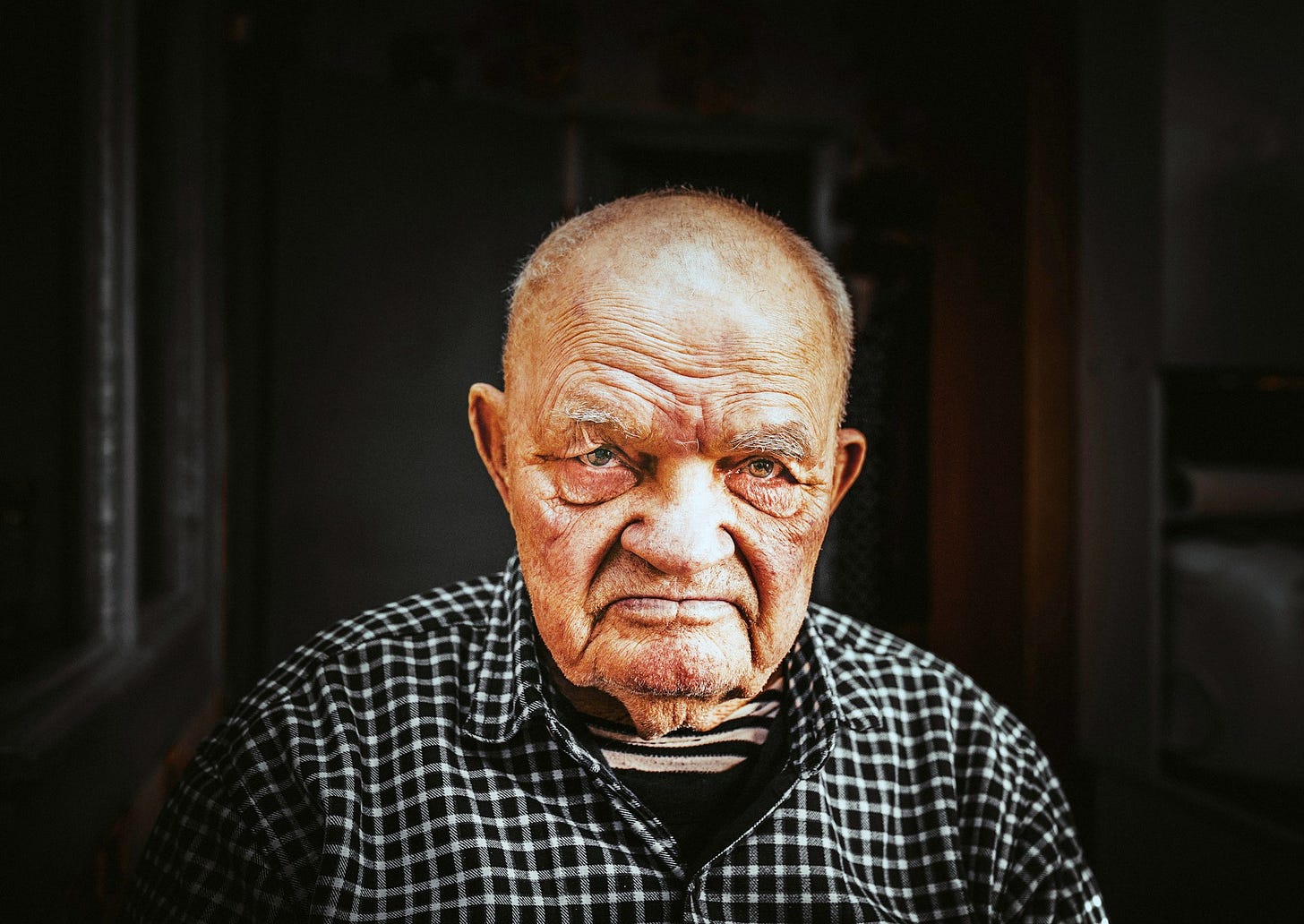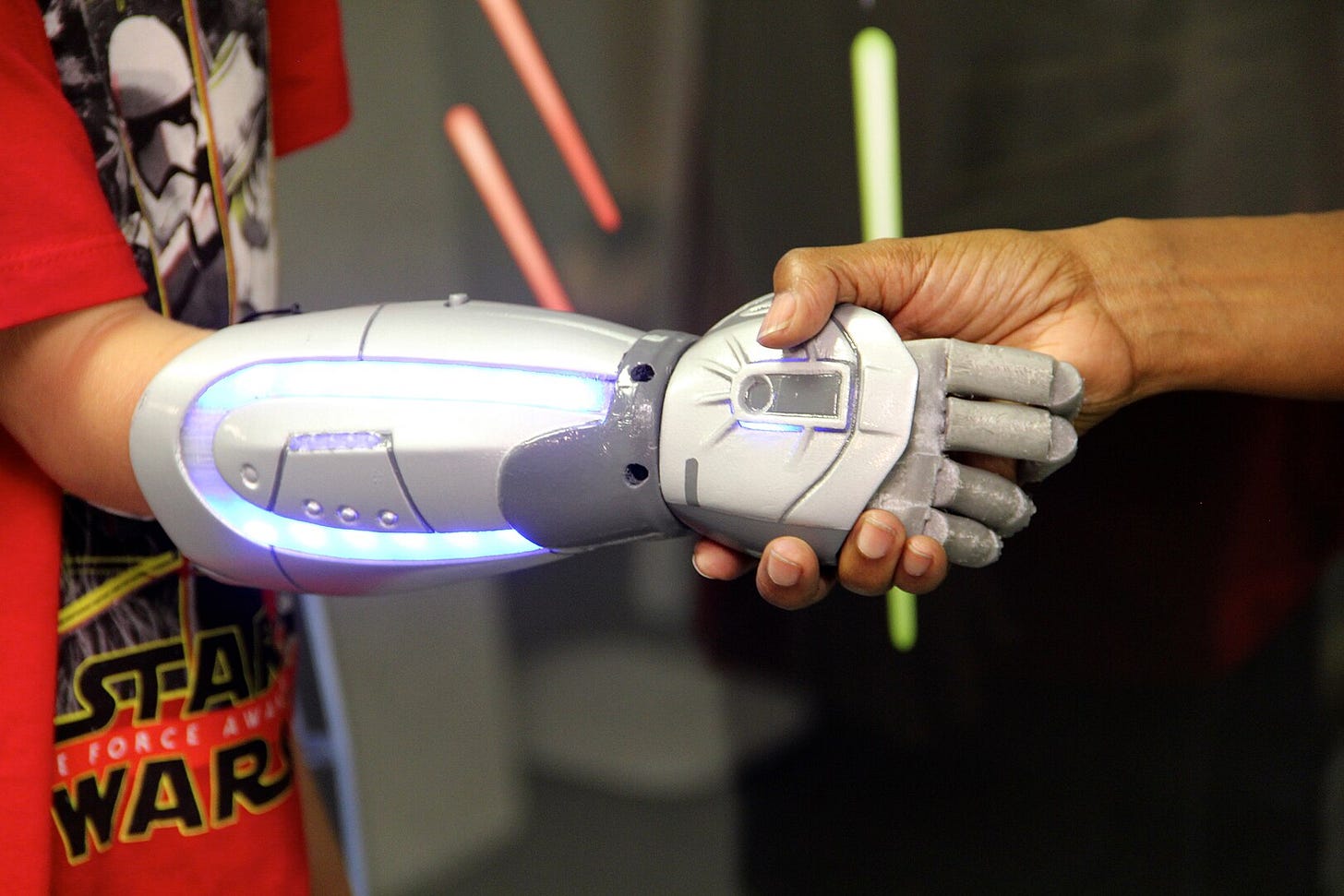It might have started with walkmans. I remember the first time seeing a guy on a bus in Calgary with headphones. He was tapping the floor with his foot to a rythm only he could hear. We smiled at each other with my mother. It was weird to have someone present in body yet being somewhere else in mind.
Source: whoalice-moore, Pixabay
The first cell phone I saw was not yet really portable. We were sitting in a fellow student’s car in Toronto. My girlfriend touched the handset between the front two seats. “What’s this?” “It’s a phone,” said Michael who was German, casually steering the big car. My girlfriend, who was brave to the point of freshness, picked up the receiver. “Can I call someone…”, she asked. Michael, slightly surprised for a moment, wagged his fingers. “Sure.” I don’t remember who she talked with and I only found out later that such calls cost a fortune at that time. It didn’t matter, Michael was a real estate tycoon.
A year or two later in Colorado, we hiked up a mountain with another fellow student. We had a snack at the top. My partner was a doctor. Out of his backpack, along with the sandwiches, came a cell phone, gigantic by today’s standards, but this time true to the name ‘mobile’. Somewhat apologetic, he said he was on call. “You mean I could call my grandmother in Hungary with this?”, I asked in astonishment. “It wouldn’t be cheap, but yes”, he said. My eyes swept across the endless mountain peaks towards the east. Something was wrong. It was as if the thousands of kilometres between us had been taken away, along with the emotions attached to them. Those handwritten letters that took a week to arrive, they had weight. What could I say all of a sudden? How can I be among the cherry trees and in the Rockies at the same time?
Source: Amir-abbas Abdolali, Unsplash
Some more time had passed, and we entered the era of the emperor’s new clothes democracy together with the warlords Western consultants that came with it. An American in downtown Budapest was talking loudly into the device held to his ear. At that time that appeared completely off. People glanced nervously at madmen talking to themselves on the street, gesturing, having a debate. It was, in a difficult to pinpoint way, creepy to be surrounded by people who were not a part of our world but another reality. One of the names for cell phone in Hungary was ’gruffphone’ because many aggressive, brutish people were the first to have one. They walked around flaunting their prized possession, plunking it on the table in bars as if it was some kind of a weapon. Intellectuals were openly condescending to the new phenomena, literary magazines published bemoaning articles.
The human nervous system is astonishing in its flexibility. After a good thirty years, a generation’s time we live on another planet. If there are eight people in a railway cart, chances are eight of them are touching buttons, looking at a screen, or talking to someone who is not present. Human beings breathing around them are only considered a potential obstacle, monitored at most by peripheral vision. Talking to a stranger? When I was a child, men played cards on the train, women did handiwork, someone might have read a book or a newspaper. People looked each other in the eye and conversed. Mostly amiably, sometimes not, but they certainly noticed each other. Their minds were where their bodies were.
Now you’re thinking I got stuck in the past like old people do. Those were the times! Not even nostalgia is like it used to be… The young people of today…
Source: Evgeniy Kozlov, Unsplash
Don’t you start listing the advantages of cell phones. If they weren’t spectacular, we wouldn’t have gotten hooked on them like on heroin. Their disadvantages might be less obvious, yet on the long term they mess up people’s brains as well as the fabric of society. But if you refrain from lauding them I won’t list all their negative effects now. I’ll just focus on a single phenomenon.
A few years ago a friend of mine posed a question in a group: why are there so many films about zombies these days? We didn’t even know the word before. Today the slave corpses raised from the grave by Haitian sorcerers are as natural a part of children’s lives as Santa Claus. None of our group found this phenomenon very appealing, the Easter Bunny being definitely more attractive. We live in a zombie-ish world, we concluded, the films simply reflect everyday reality. At that time we didn’t make a connection with cell phones.
Source: carpoolgoddess.com
People frown at such an allegation. Come on, this happens with every new invention. They even railed against the bicycle. The stuck-in-the-mud faces, the ortodox, the fossil-brained always protest at first, then eventually they give in or die out. Life goes on. Progress is unstoppable. Humanity’s reaching for the stars!
As far as travel to the stars is concerned, we haven’t moved an inch closer in half a century. This is a topic for another time. We did succeed with teleportation, however. True, the body can’t yet go with the mind which is away from the world of people surrounding us. We walk with defocused eyes among people, as we’ve been spending more and more of our lives in the little box. Our soul has been loaded up on the internet, our bag of bones is just a zombie trudging along in the material world. That colorful screen with its inexhaustible information, along with those apps, they have become our masters. We feel naked, insecure, handicapped without our phones. What would I do all by myself, without my organ of amusement? Yes, we have a new body part — as of now, yet unattached.
Source: StarWarsRey, Wikipédia
Fortunately, all is not lost. Although the concept of placing microchips has already started to be introduced into mental space we don’t have a chip inside us just yet. Our organism can still detach itself from the machine. We can legally turn it off. Hang up. Leave it at home.
But what about my kids! And someone important might want to contact me! It’s got my map, my glzhrmny app, my calendar, my camera, my music, my wallet...
Yes. And, more importantly, a piece of your soul that you may want to get back.
Source: Zac Durant, Unsplash
Alcoholics Anonymous says the first step on the road to recovery is admitting your addiction. It’s not pleasant, but it’s a step in the right direction. My name is so-and-so and I’m an alcoho— er, phone-zombie.
People always object to such sharp statements. It’s not an addiction, it’s just a useful tool. You don’t even need a syringe. Why should I quit? I need to be available because... I need it for my work... I don’t want to miss out on events... I just...
Alcoholics Anonymous advocates total abstinence. That would take a real hero. I’m just talking about whether you can still feel human without your machine. Do you dare leave it at home? Can you turn it off for three hours... a day... a whole weekend? Can you take those suction cups off you and just be where you are? Feeling the freedom again. Looking passersby in the eye, asking for directions from people. Listening to the birds singing. Breathing in the scent of the flowers.
Don’t throw it in the river though — it’s loaded with heavy metals.








Szép napot Péter!